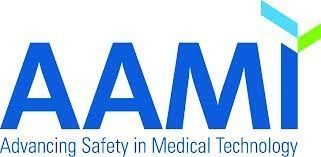
AAMI Foundation Provides Framework to Help Reduce Nonactionable Clinical Alarms
The AAMI Foundation’s National Coalition for Alarm Management Safety has published a framework that it believes will provide a “consistent roadmap” for hospitals trying to reduce the number of nonactionable alarms.
Tue May 17 2016
The AAMI Foundation’s National Coalition for Alarm Management Safety has published a framework that it believes will provide a “consistent roadmap” for hospitals trying to reduce the number of nonactionable alarms.
The framework comes at a time when healthcare delivery organizations are under mounting pressure to improve their alarm management practices. For example, at the start of this year, The Joint Commission began requiring hospitals to establish and implement policies and procedures for managing clinical alarms.
The framework was published as an article in the May/June 2016 issue of BI&T (Biomedical Instrumentation & Technology), AAMI’s peer-reviewed and award-winning journal.
Alarm management-related issues, such as alarm fatigue, are consistently ranked as a top patient safety hazard by the ECRI Institute and other organizations. Alarm fatigue occurs when the cacophony of alarms from medical devices in a hospital unit—the majority of which are false or nonactionable—overwhelms clinicians to the point that they become desensitized, making it difficult to effectively respond to serious events.
“Alarm fatigue is a challenging sociotechnical problem, and hospitals often do not know where to start in addressing this issue,” said James Welch, CCE, executive vice president of product development at Sotera Wireless and lead author of the BI&T paper. “The goal of the framework is to provide a consistent and repeatable methodology by which each hospital can gauge where it is in addressing alarm fatigue and thereby move closer to becoming a high-reliability organization. By having a consistent process for alarm management, organizations will be better able to help one another achieve durable solutions.”
The coalition based its framework on the Capability Maturity Model (CMM) developed by the Software Engineering Institute at Carnegie Mellon University. The coalition tailored the CMM to specifically address the activities needed to achieve sustainable alarm management. The resulting Clinical Alarm Capability Maturity Model outlines five levels:
- Level 1: Initial—Organizations at this level use an ad hoc, unsystematic approach to alarm management. Clinical staff do not know how, or do not feel empowered, to make meaningful changes related to alarm management.
- Level 2: Managed—The organization has established an empowered committee devoted to improving alarm management and willing to test changes in a controlled manner.
- Level 3: Define—A local pilot program has been completed, and the team has gathered objective evidence that alarms are being appropriately controlled and that the improvement is sustainable.
- Level 4: Evidence-Based—The team has the capability to expand what it learned from the pilot across the organization. Consistent metrics are being routinely reported and indicate lasting improvements in alarm performance.
- Level 5: Optimized—The organization, now recognized as a high-reliability organization, has demonstrated a sustainable culture of care where no patient is harmed as a result of inappropriate alarm settings.
“This groundbreaking paper provides the structure hospitals have needed to develop sustainable solutions,” said Marilyn Neder Flack, senior vice president of patient safety initiatives and executive director of the AAMI Foundation. “The framework takes the guidance the coalition presented in its Clinical Alarm Management Compendium a step further by providing a way for organizations to evaluate and measure their progress. By using this iterative process, nuisance alarms can be eliminated and patient safety will be enhanced.”
The AAMI Foundation is a 501(c)3 charitable organization whose primary mission is to promote the safe adoption and use of healthcare technology. It does this through the work of safety initiatives, the distribution of scholarships to students, global outreach initiatives, and awards for excellence. Click here to learn more about the AAMI Foundation’s National Coalition for Alarm Management Safety.
